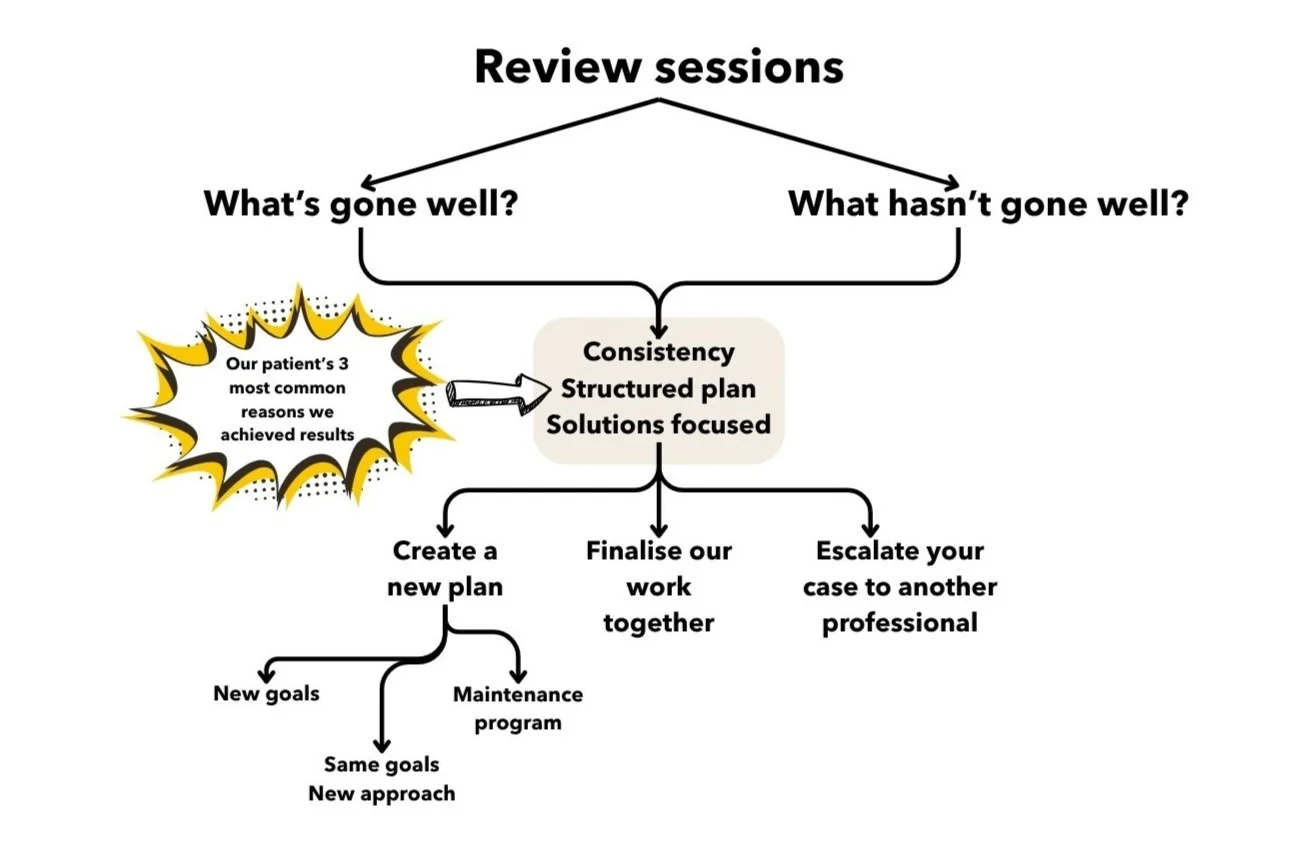Problems either develop due to behaviour or trauma.
In the case of trauma, it’s normally as straightforward as following what’s required for that injury…
But in the case of behaviour… well that’s a little different.
If you’ve developed pain by just being yourself, then you could make an argument suggesting that what you are doing is creating your problem.
Yes, we can treat the sore and tight areas… but our job is to really identify which behaviour is really creating the problem, then make a plan with you on how we will intervene on that behaviour.
See, that’s a little more challenging… but part of committing to yourself is doing the work…
But you know what, sometimes life is busy, and everything can seem a little too much… So, if you need us to provide temporary relief, we will! BUT, as soon as you’re ready, it’s time to empower you with a strategy to solve the problem and get you to stop needing us.
Now here’s when it get’s tricky…
When you sustained a trauma a while ago (let’s say your ankle), developed a behaviour as a result of it and now you’ve got a new pain that gradually developed in a different spot altogether (let’s say your lower back). If this is the case, now matter how much you treat the lower back, if the behaviour that’s causing the issue is stemming from incomplete ankle rehab, then you’ll only get temporary relief.
So, we take the care we need to take to dive deep into your history to really understand what we’re dealing with.
We ultimately want to solve your problem so you are out of our clinic, but to do that, we need to be a team and work together to understand the depth of your problem.

